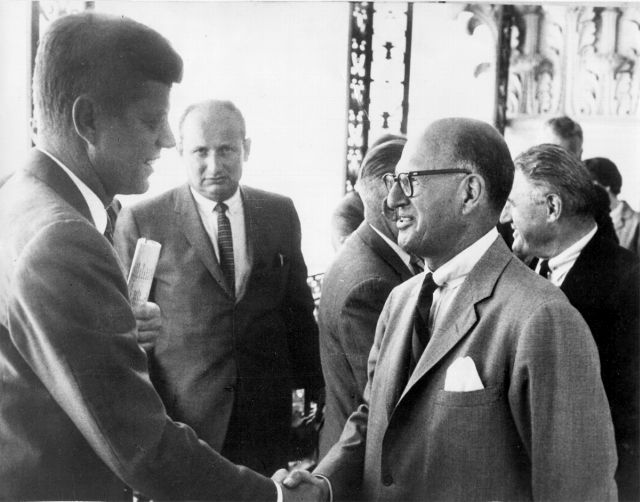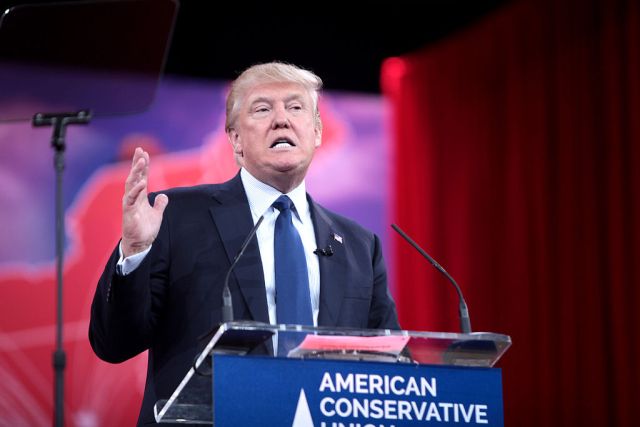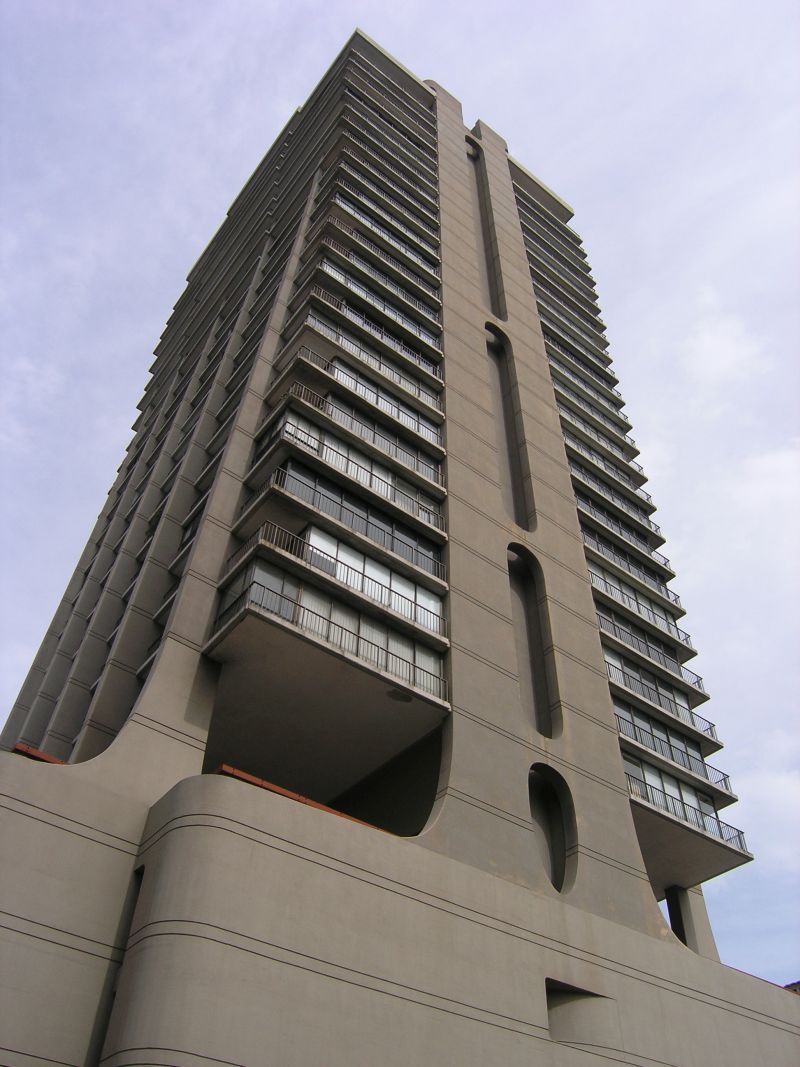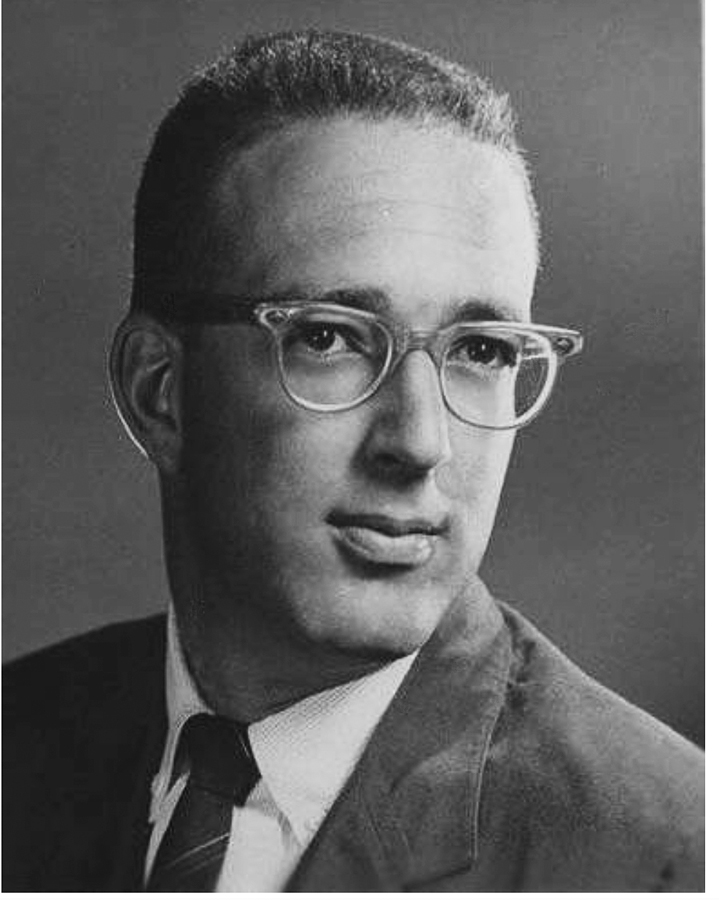
Why Joe Eichler was no Donald Trump
 |
|
|
Both were legendary developers – but that’s about where the comparison ends. Still, it’s worth noting that Joe Eichler – specifically, the bankruptcy of Eichler Homes – had something to do with the rise of the Donald.
When Eichler Homes teetered on bankruptcy, and then plunged into it, Eichler’s son Ned returned to the company to handle things. His experience with Eichler Homes led to his helping the bankrupt Penn Central several years later.
“The experiences with bankruptcy taught me something I was very good at and didn’t know it. I was very good at being very clear at how to deal with deep financial trouble,” Ned said in an interview in 2008, six years before his death. “Not many people are.”
When the Penn Central went bust in the early 1970s, Ned took on the task of disposing of its huge portfolio of real estate, including 100 acres of rail yards at the edge of Manhattan. It was, Ned said, “the discovery of Trump. And I am the discoverer.”
Ned proposed hiring the young, untested man to develop the rail yards.
“I had a hell of a time convincing [my boss] this was the right thing to do.” Trump was in his late twenties, the son of a developer who worked in New York’s outer boroughs.
 |
|
|
“What I recognized with Trump, what nobody else recognized,” was that he was just the man for the job, Ned said. “To have somebody take on the problem of the railroad cars on the West Side of Manhattan was so complicated a problem. The economy of New York, it was literally almost in bankruptcy. I said, we have to find somebody who is a developer without property in (Manhattan), because all the developers [in the city] are in terrible shape.”
“Trump showed up out of nowhere. I recognized after spending time with him, he fit what we needed. His father was a very successful builder and an owner of apartments, but not in Manhattan. He owned in Queens and Brooklyn, and they were all doing fine."
Trump’s father, Ned said, “was a very private guy” so there would be no scandals. Plus, he was connected with Mayor Abe Beame.
“Third, Trump was a guy out of ‘The Red and Black,’ Ned said, referring to the Stendahl novel, “the guy who’s come to conquer the big city.”
“Here’s an ambitious son, very smart, he knew business very well, and he was backed by his father, who was perfectly willing to allow Donald to become a big success, and willing to give him some money to do that.”
“Trump had the ambition, the money available to do it, and the political connections,” Ned said.
 |
|
|
Trump has since gone on to multiple ventures, ranging from his current run for the Oval Office to apartment and office towers, casinos, and TV ‘reality’ shows. Joe Eichler passed away at age 74 in 1974, never achieving the wealth of Trump, but leaving behind a legacy of fine residential neighborhoods.
He is also known to history as a man who had style and class and whose involvement in public policy was a good deal less bellicose than Trump’s, but closer to the heart.
As for the difference in style, Ned noticed it right away. Both Trump and Joe Eichler had big egos. But Eichler – a fan of Fred Astaire – also had grace.
“When Donald Trump took me to the 21 Club and ordered well-done steak with French fries, I was so embarrassed,” Ned recalled. “Trump yells at the guy on the other side of the room, ‘Bring me some ketchup. In a silver bowl.’ Trump was showing off. My father wasn’t a show off. And it’s a big difference. He never did anything to impress anybody.”
Like Trump, Eichler got involved with the issues of the day – but not by shoving himself before a microphone. “He was quiet, reserved, he was self-assured, but he was not putting himself on a pedestal like Trump does,” says Frank LaHorgue, a newly minted MBA in 1961, who went to work for Eichler Homes because, he remembers, “this is a company with a social conscience.”
He’d just seen Joe Eichler on a TV interview show on KQED. “I was really extremely impressed by this fellow Joseph Eichler, whom I had never heard of before.
“They were talking about housing discrimination, and he was making very strong statements that his company wasn’t working that way, that they followed open occupancy policies no matter what area they were in.”
“The whole civil rights situation was at the forefront at the time,” says LaHorgue, who stayed with Eichler Homes four years, becoming manager of financing and escrow.
 |
|
|
Eichler Homes was known for its policy for selling to minorities before that became the law of the land and when many developers did not.
“I clearly remember Ned Eichler saying, when they offered me a job, and this was discussed many times in sales meetings, it was a condition of employment for all of us not just to be civil when a minority person walked through the door but to give them the exact same sales pitch we gave to everyone.”
Joe knew politicians in Sacramento and elsewhere. “He was known as a major supporter of the Democratic Party,” LaHorgue says.
One of LaHorgue’s earlier assignments for Eichler Homes, in fact, was to help Governor Pat Brown’s administration when it was temporarily short-handed. LaHorgue worked in the governor’s office for three weeks, mostly handling correspondence. He also help set up a California tour for a folkloric dance troupe from Mexico.
LaHorgue and Joe never discussed civil rights or politics. “You really didn’t have to [discuss politics with Joe],” LaHorgue says. “You knew where he was [on the issues].”
“He was a man of few words. He didn’t go on and on and on. He wasn’t a blowhard in any sense.”
“He and Trump, I think they were totally opposite.”
- ‹ previous
- 651 of 677
- next ›



